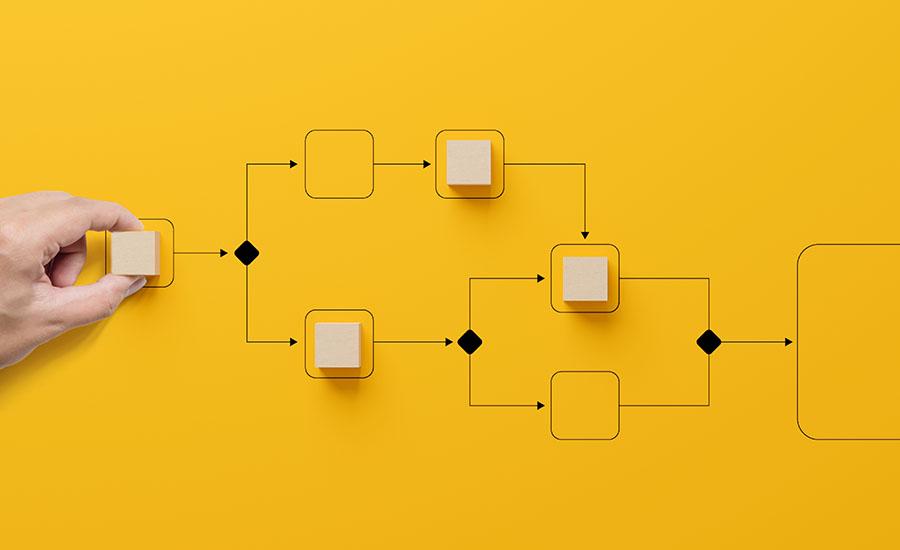Grades:
5th Grade
This hands-on lesson will help students to understand the connection between Earth's orbit around the sun and how it relates to the time of day. Students create a sundial and will trace the shadow
Grades:
6th Grade, 7th Grade, 8th Grade, 9th Grade
Students will create Rube Goldberg machines from simple machines in this engaging lesson. The teacher can determine materials such as wooden planks, paper towel rolls, bottle caps, marbles, cardboard
Grades:
4th Grade
In this hands-on lesson, students will construct a sturdy structure out of toothpicks and marshmallows that will withstand an earthquake simulation (a tray of Jello is used). This is an engaging way
Grades:
6th Grade
Students will plant and observe plants from seed to full germination while making observations on growth in this engaging lesson. This will be done using a science notebook to record germination
Grades:
4th Grade, 5th Grade, 6th Grade, 7th Grade, 8th Grade
Classes will prepare several garden bins for planting. By using a tape measure, students take into consideration the recommended distances of seed planting described on the seed packet and the
Grades:
7th Grade
This lesson plan is written for 7th grade science but can be modified to be used with any age group. Students will create petri dishes and will collect samples from bathrooms. Students will then
Grades:
Kindergarten, 1st Grade, 2nd Grade, 3rd Grade
The students will create a Three Sisters Garden by participating in a teamwork activity, listening to a read aloud, watching a video, creating a diagram, planting the garden, and creating a video
Grades:
5th Grade
Summary: Today we will observe and test five known mystery powders, identify examples of physical and chemical reactions to determine who committed the crime. Materials: 6 teaspoons or small spoons
Grades:
8th Grade
Students will use stomp rockets to collect data. With this data they will create and analyze trends of a scatterplot.
Grades:
Kindergarten
Students will analyze shadows to determine how light moves and changes throughout the day.
Grades:
3rd Grade, 4th Grade, 5th Grade
This lesson takes place in as classroom for one or more 60 minute class periods. The data collection portion may continue for 2+ weeks (or whatever time frame you decide). An emphasis is placed on the
Grades:
5th Grade
This is the second lesson in the series of lessons comparing how garden growing techniques determine plant growth/production. In this lesson, students will research the best types of plants to grow
Grades:
5th Grade
Students will germinate seeds and record any observations during the process.
Grades:
Kindergarten, 1st Grade, 2nd Grade
Students will be learning about the life cycle of a potato, how to grow potatoes, and measuring the growth of the stems. You'll need potatoes that are ready to plant, garden space, or tubs to put the
Grades:
6th Grade
In this unit, students will study the effects of air pollution and engineer an environmentally friendly air filter to reduce pollutants in the air using common household items and recycled materials
Grades:
6th Grade, 7th Grade, 8th Grade
Summary: Students are coding and observing robots to try and determine all forces acting on the robot. Materials; Robots that can be coded to move in different ways. Laptops to code. Agenda The
Grades:
1st Grade
Students will grow to understand what decomposition is and why it is a vital part to their compost bins success.
Grades:
6th Grade, 7th Grade, 8th Grade
Model Building For Disaster is a 4-6 week unit in which students research natural disasters around the world and their effect on developing countries. Following their research, student teams design
Grades:
4th Grade
Students will learn how weather and climate can impact planting in this second lesson out of 4. Agenda What is weather? What is climate? What is the difference between weather and climate? How will
Grades:
5th Grade
Students will be using their science and math knowledge to engineer a golf course! This is a great way for students to use that knowledge in a real life way! Students get the chance to explore how
Grades:
5th Grade
This is the 2nd part in a 4-lesson series. This lesson is on the fins and how they work with balanced and unbalanced forces. Students will need the worksheet, the article for read and reflect, foam
Grades:
3rd Grade, 4th Grade, 5th Grade
In this engaging lesson, students measure throw-ins and convert their data to meters by dividing by 100. They will evaluate measurement systems and decide the best measurement size. You will need
Grades:
3rd Grade, 4th Grade, 5th Grade, 6th Grade, 7th Grade, 8th Grade, 9th Grade, 10th Grade, 11th Grade, 12th Grade
In this hands-on lesson, students use the engineering design process (EDP) to create a prototype of a device that can prevent squirrels from accessing a bird feeder. This is a great way to integrate
Grades:
6th Grade
In this unit, students will study the effects of acid rain and chemically engineer an environmentally friendly solution to neutralize the acid in a simulated river contaminated by factory run-off
Featured Lesson Plans
Check out these notable lesson plans.

Featured
Zippy the Elf's Zipline Zone
Grades:
6th Grade
In this creative engineering design lesson, students are challenged to use an inclined plane to create a safe and exciting zipline park for Zippy the Elf. This lesson reviews simple machines and has

Grades:
3rd Grade
This lesson is about exploring Arizona's state bird, the cactus wren, that lives in the desert, has special body parts and behaviors that help it survive in its harsh environment. Students will learn

Grades:
Kindergarten, 1st Grade
In this primary Kindergarten-1st grade STEM lesson, students will learn to define algorithm, bug, and debug in reference to programming. Through engagement with a virtual simulation, students will
